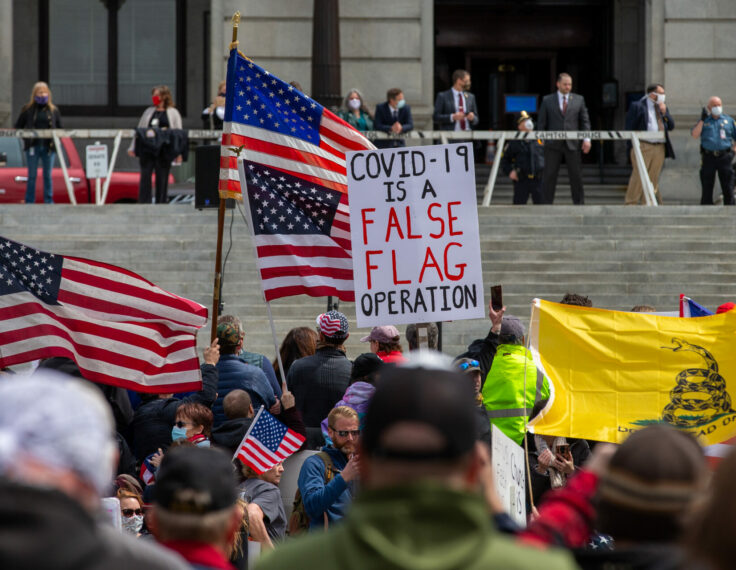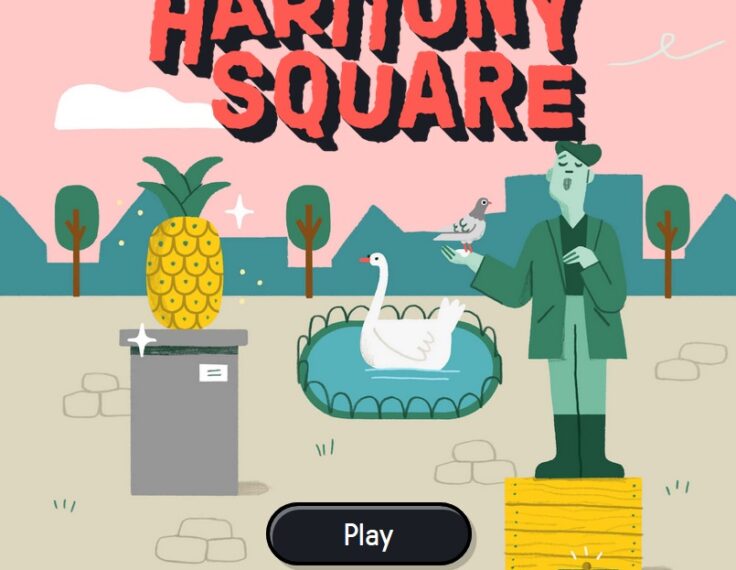
A year in review
Natascha Chtena
Volume 1, Issue 8 Editorial
By Natascha Chtena IMAGE BY Lindsay Henwood ON UNSPLASHAs we enter 2021, the HKS Misinformation Review completes its first year as a journal dedicated to publishing work of the highest quality from across the misinformation field on a compressed publication schedule.

Conspiracy and debunking narratives about COVID-19 origins on Chinese social media: How it started and who is to blame
Kaiping Chen, Anfan Chen, Jingwen Zhang, Jingbo Meng and Cuihua Shen
This paper studies conspiracy and debunking narratives about the origins of COVID-19 on a major Chinese social media platform, Weibo, from January to April 2020. Popular conspiracies about COVID-19 on Weibo, including that the virus is human-synthesized or a bioweapon, differ substantially from those in the United States.

Tackling misinformation: What researchers could do with social media data
HKS Misinformation Review Guest Authors
Written by Irene V. Pasquetto, Briony Swire-Thompson, Michelle A. Amazeen, Fabrício Benevenuto, Nadia M. Brashier, Robert M. Bond, Lia C. Bozarth, Ceren Budak, Ullrich K. H. Ecker, Lisa K. Fazio, Emilio Ferrara, Andrew J. Flanagin, Alessandro Flammini, Deen Freelon, Nir Grinberg, Ralph Hertwig, Kathleen Hall Jamieson, Kenneth Joseph, Jason J.

The different forms of COVID-19 misinformation and their consequences
Adam M. Enders, Joseph E. Uscinski, Casey Klofstad and Justin Stoler
As the COVID-19 pandemic progresses, an understanding of the structure and organization of beliefs in pandemic conspiracy theories and misinformation becomes increasingly critical for addressing the threat posed by these dubious ideas. In polling Americans about beliefs in 11 such ideas, we observed clear groupings of beliefs that correspond with different individual-level characteristics (e.g.,

Breaking Harmony Square: A game that “inoculates” against political misinformation
Jon Roozenbeek and Sander van der Linden
We present Harmony Square, a short, free-to-play online game in which players learn how political misinformation is produced and spread. We find that the game confers psychological resistance against manipulation techniques commonly used in political misinformation: players from around the world find social media content making use of these techniques significantly less reliable after playing, are more confident in their ability to spot such content, and less likely to report sharing it with others in their network.

Research note: Does the public support fact-checking social media? It depends whom and how you ask
Timothy S. Rich, Ian Milden and Mallory Treece Wagner
We analyze original survey data on support for social media companies’ fact-checking of politicians in general and President Trump in particular. We find overwhelming majorities of Democrats support fact-checking in both instances, while a majority of Republicans support fact-checking of politicians in general but not of President Trump.
